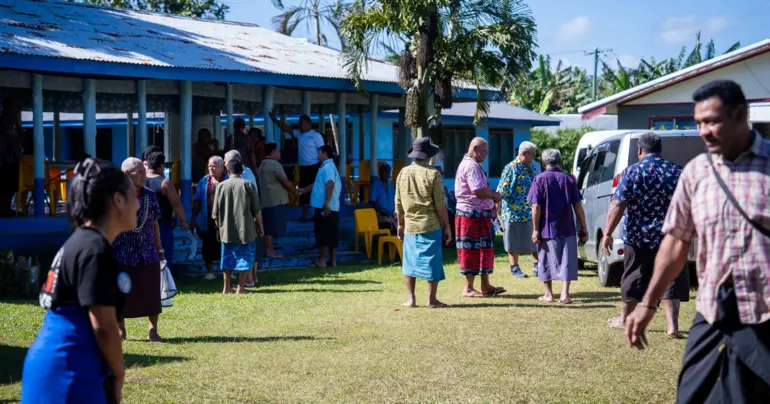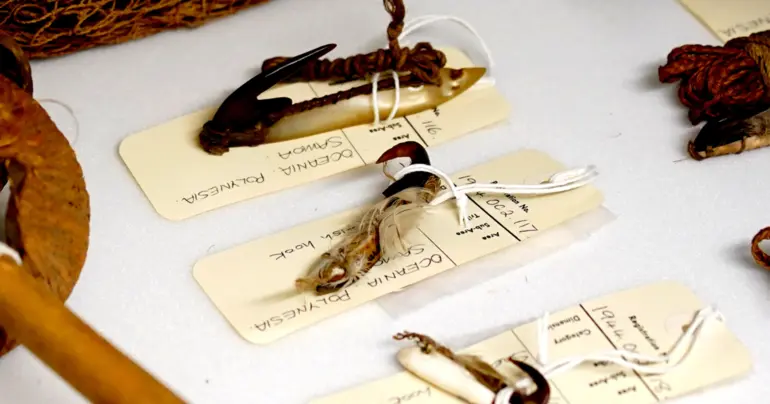Marine Litter concern in Samoa
Samoa, a picturesque island nation in the South Pacific, is celebrated for its stunning beaches, vibrant coral reefs, and rich marine life. However, it faces a significant environmental challenge: marine litter.
Marine litter, also known as marine debris, encompasses any human-made solid material that finds its way into the marine environment. This litter not only mars the natural beauty of Samoa's beaches but also poses a grave threat to marine life and the overall health of the ocean.
Marine litter in Samoa originates from various sources. A major contributor is land-based activities. Litter from streets, parks, and other public places often end up in the ocean through rivers, streams, and storm drains. Common items include plastic bottles, bags, food wrappers, and cigarette butts. Marine-based activities such as fishing and shipping also contribute significantly to the problem, with lost or discarded fishing nets, lines, and other gear, as well as waste from ships, adding to the marine litter.
The impact of marine litter on marine life is severe. Many marine animals mistake plastic debris for food. For instance, sea turtles often consume plastic bags, mistaking them for jellyfish, which can lead to choking, intestinal blockage, and death. Birds, fish, and other marine creatures also get entangled in discarded fishing gear, resulting in injury, drowning, or restricted movement, which affects their ability to find food and escape predators.
The presence of marine litter has broader environmental and economic consequences. Coral reefs, which are vital to the marine ecosystem and a major attraction for tourists, can be damaged by debris. These reefs provide habitat and food for many marine species and help protect coastlines from storm surges and erosion. When litter accumulates on the reefs, it can smother corals and block sunlight, hindering their growth and reproduction.
Tourism, a critical industry for Samoa, contributes significantly to its economy. Pristine beaches and clear waters attract tourists from around the world. However, marine litter can deter visitors, leading to a decline in tourism revenue. Additionally, the cost of cleaning up litter from beaches and coastal areas can be substantial, straining local resources.
Addressing the issue of marine litter in Samoa requires a multi-faceted approach. The government, local communities, and international organizations are all working together to tackle the problem. Public awareness campaigns are crucial for educating the populace about the impact of littering and the importance of maintaining a clean environment. These campaigns aim to change behavior and encourage proper waste disposal.
Improving waste management infrastructure is essential to prevent litter from reaching the ocean. This includes providing more trash bins in public places, ensuring regular waste collection, and promoting recycling programs. Enforcing laws against illegal dumping and littering can also deter such behaviors. Implementing fines and penalties for those who violate these laws is an effective measure to reduce marine litter.
Regular beach cleanups organized by local communities, non-governmental organizations (NGOs), and volunteers help remove litter from coastal areas. These events not only clean the beaches but also raise awareness about the issue. Samoa also benefits from the support of international organizations that provide funding, expertise, and resources to combat marine litter. Collaborative efforts help address the issue on a larger scale and promote best practices.
Every individual can play a role in reducing marine litter. Simple actions such as properly disposing of trash, reducing the use of single-use plastics, and participating in local cleanup events can make a significant difference. Supporting policies and initiatives aimed at reducing marine litter is also important. By making environmentally conscious choices, individuals contribute to the health of the oceans and the well-being of future generations.
Marine litter is a pressing environmental issue that threatens the natural beauty and ecological balance of Samoa. It endangers marine life, damages coral reefs, and impacts the tourism industry. Addressing this problem requires collective efforts from the government, communities, and international partners. Through public awareness, improved waste management, strict enforcement of laws, and active participation in cleanup activities, Samoa can work towards reducing marine litter and preserving its pristine marine environment. Each individual has a role to play in this effort, and together, we can ensure that Samoa's beaches and oceans remain clean and beautiful for generations to come.











